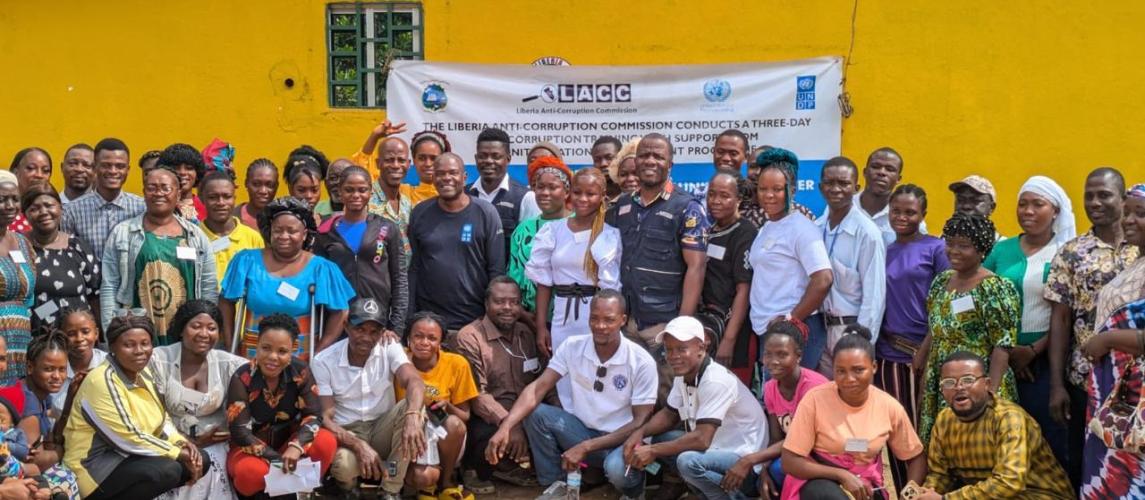
LACC Concludes Social Accountability Workshop Training in Gbarpolu and Lofa Counties
Bopolu City, Gbarpolu County and Voinjama, Lofa County - Gbarpolu County residents have vowed to intensify their efforts against corruption, declaring a full-scale battle against the vice. This commitment was highlighted at the conclusion of a three-day training workshop focused on promoting social accountability and transparency.
The workshop is part of the project “Empowering Citizens and Communities to Foster Social Accountability and Transparency in Governance and Public Service Delivery,” funded by the Peacebuilding Fund and implemented by UNDP, UN Women, and Integrity Watch Liberia (IWL).
Participants expressed their gratitude to the LACC and pledged to take advantage of the Whistle Blower Act to report corruption within the county. Notably, Madam Mama Korpu, a visually impaired representative of the Disabled Community, requested that the Whistle Blower Act, the Witness Protection Act, and the Amended LACC Act be made available in Braille to ensure accessibility for the visually impaired.
James Kingsley, Program Manager of Education & Prevention at the LACC, commended the active engagement of the citizens, noting that there were “no dull moments” throughout the workshop. He emphasized the importance of collective effort in driving change and encouraged positive engagement with local leaders.
Emmanuel M. Corcor, Administrative Assistant to the Gbarpolu County Superintendent, assured citizens that the Superintendent’s Office is open to constructive criticism and remains transparent in its operations.
In a related workshop held in Voinjama, Lofa County, Mr. Methuselah M. Gbigbi, Administrative Assistant to the Lofa Superintendent, highlighted the critical role of fighting corruption in enhancing national growth and improving public services. UNDP Civil Society Coordinator, Emmanuel Kollie, urged participants to become ambassadors against corruption in their communities.
John E. Tommy, Prevention Officer at the LACC, underscored the necessity of citizen involvement in anti-corruption efforts and thanked participants for their engagement. The workshop concluded with an interactive session on various anti-corruption strategies and techniques.
Attendees included local government officials, town clan chiefs, youth groups, market women, civil society organizations, and community members from neighboring towns.
